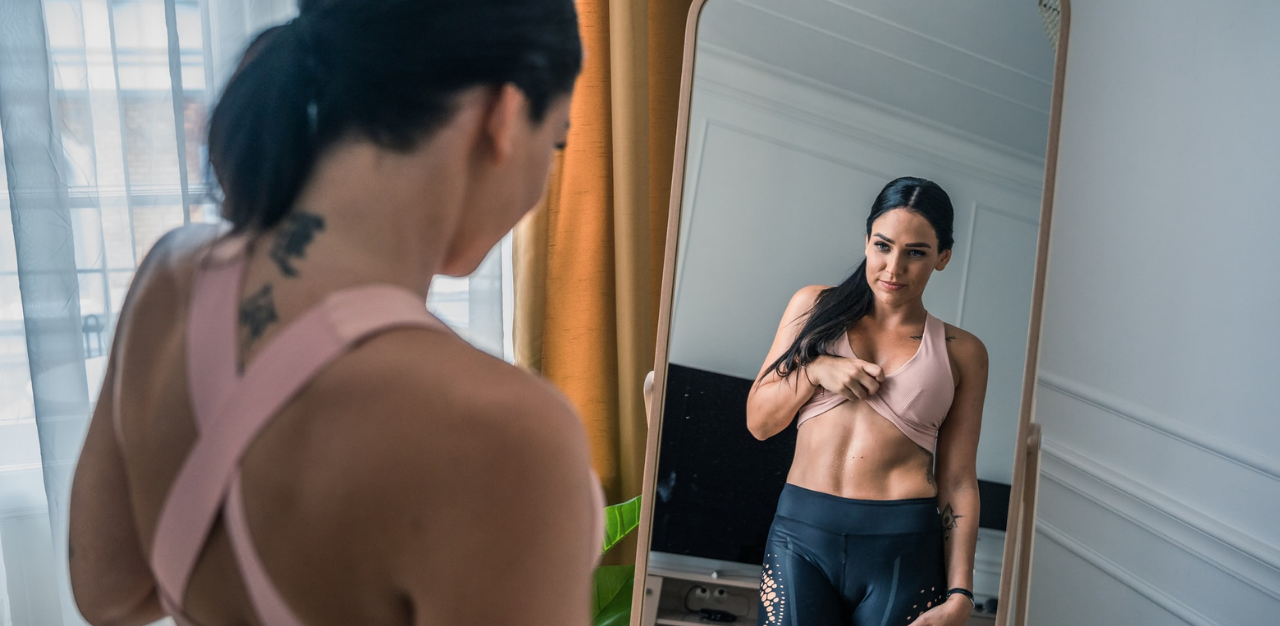The beauty industry and media have long reflected society’s ideas of what is considered beautiful. In 2018, a study showed that unrealistic beauty ideals perpetuated in the media negatively impact women’s self-esteem and self-image. The HomeGround Asia explores how the persistent practice of controlling women’s bodies continues through the promotion of idealised standards of beauty.
We are no stranger to the plethora of bizarre beauty products that land on the shelves of physical and virtual stores, and make their way into shopping baskets. By some estimates, the global beauty and personal care products market is expected to grow to more than US$756 billion by 2026.
From commercials to body-care products, advertising and marketing heavily influence a woman’s self-image, reflecting society’s standards of what women should or should not look like.
Jade rollers and Yoni eggs aside, it is 2021 – the era of body positivity and plus-sized models, where selfies on Instagram accrue shame and fame in equal measure, and acceptance of one’s physical imperfections forms a bigger part of social media discourse than ever before. Yet, beauty products continue to reflect and entrench exacting expectations for physical beauty.
Wellness company goop’s Jade Egg, an egg-shaped piece of jade that is vaginally inserted and claims to aid Kegel-like pelvic floor exercises, may be one of the most well-known examples, but the products below reflect more startling standards for beauty pertaining to physical appearance.
A woman’s neverending journey to perfection
For the chest-conscious, the Pinky Queen Top Pack offers a solution that is sure to nip your insecurities in the bud, with a product that promises to “instantly [tint] skin pink for decent, natural, baby-like colour” nipples. Here, pink is associated with a “baby-like” innocence – yet another physical trait that is supposed to be desirable in women.
Subtle terms, such as ‘discreet’ and ‘uneven patches’, are also used in the product’s descriptions to refer to perceived physical imperfections, despite darker colouration being linked to hormonal changes due to the side effects of natural occurrences, such as menstruation, puberty, and pregnancy, as well as from the consumption of oral contraceptives.
Aside from being rose-scented, it is notable that the “nine varieties of beauty ingredients” in the Pinky Queen Top Pack includes placenta extract. An ingredient that has gained popularity over the years for its purported health benefits, placenta extract is becoming increasingly commonplace in beauty products – a sign, perhaps, of the lengths one is willing to go to in the name of beauty.
A leg up
For those looking for a boost for the booty, MediQtto’s Buttock Lifting Nighttime Leggings harness the benefits of compression leggings to combat gravity’s relentless attack on the body. Who needs squats and “bubble butt” workouts when you can wear leggings that deliver a “maximum 2cm lift” for your bottom? This follows the rising popularity of firm and toned posteriors as a beauty ideal, with the hashtag #squats being used in over 20 million posts on Instagram alone.
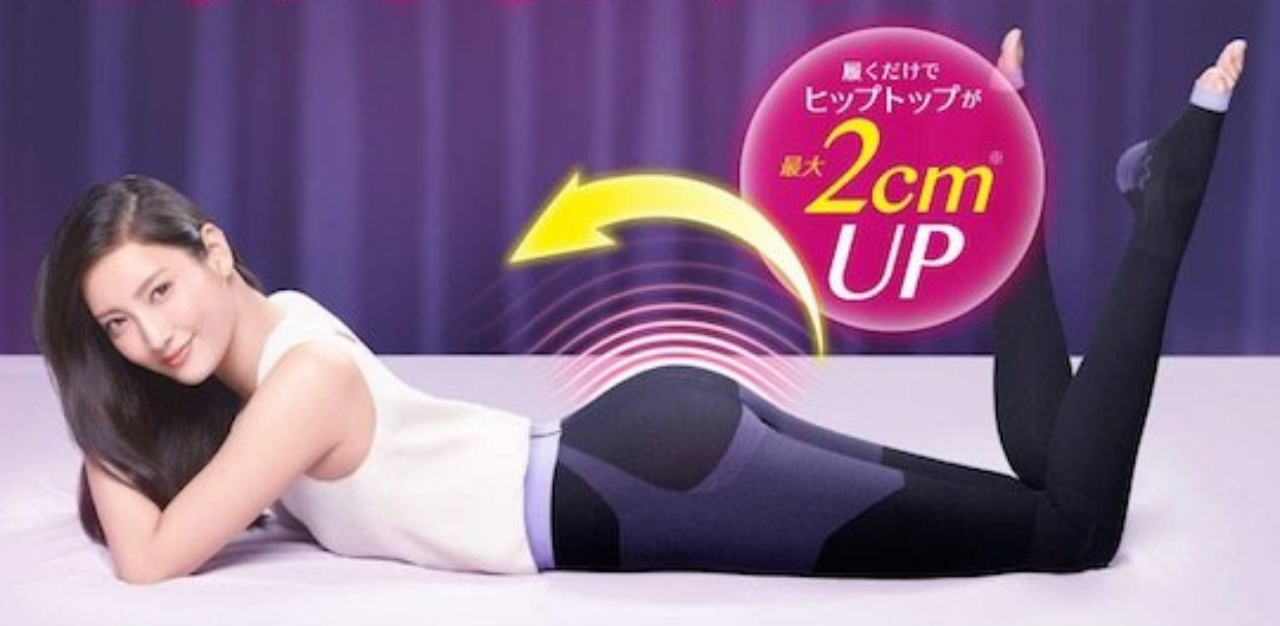
Lift those chubby cheeks
Facial slimming is yet another effect that many beauty products aim to achieve, with the Facial Lift At Once Alpha Beginners Set claiming to “stimulate the face to offset the signs of ageing”, by strengthening one’s facial muscles. This bottle-shaped, battery-operated device is apparently waterproof, making it ideal for use while enjoying a relaxing bath.
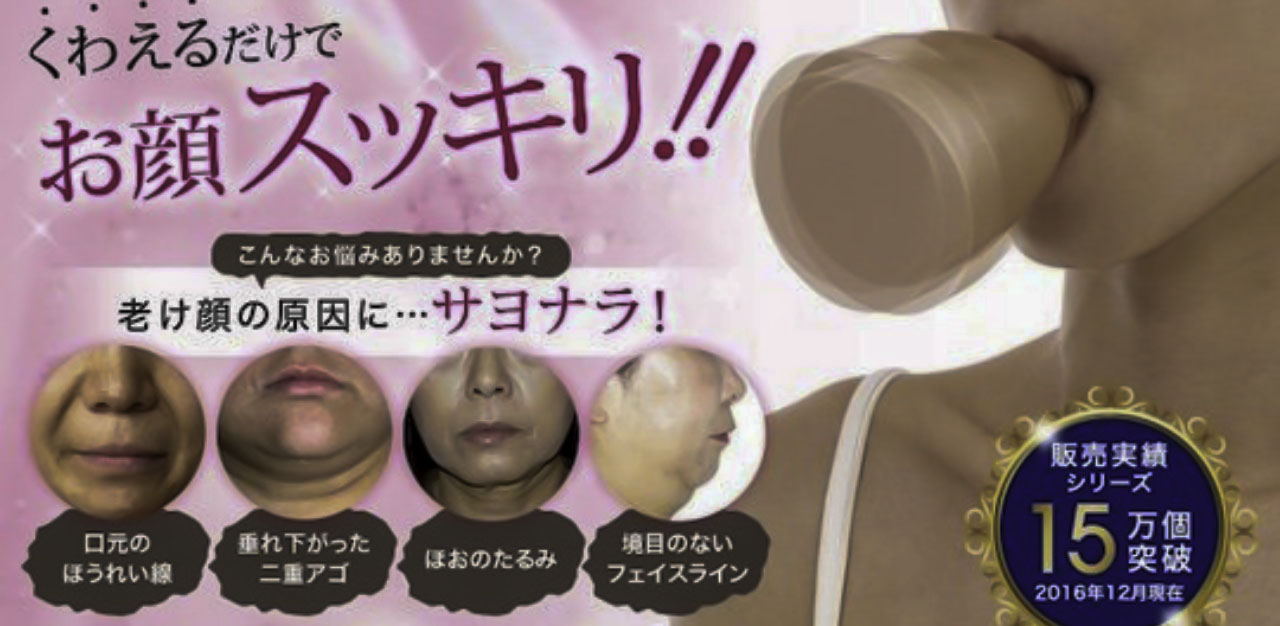
Your nose knows
Even facial features such as the appearance of one’s nose is not spared, with the Bihana Nose Adjuster Clip claiming to “slim and decrease the width of a nose and upward-facing nostril holes”, reflecting the perception that straighter and sharper noses are deemed to be more attractive.
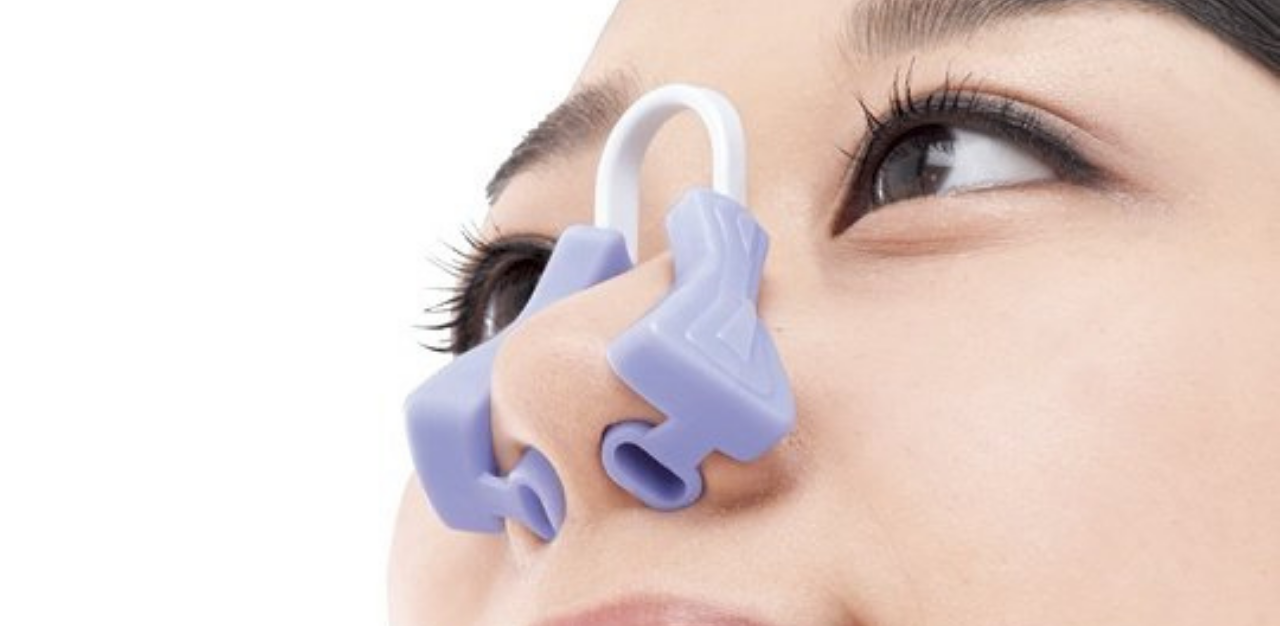
How gendered roles impact behaviour
Aside from one’s physical image, acceptable gender roles in media and marketing further impact one’s self esteem and dictate how one behaves.
Last year, a commercial for the launch of private condominium development Uptown@Farrer, in Singapore, met with controversy over its portrayal of male and female stereotypes. The male protagonist was associated with cliches like a “man cave”, while the female character, his girlfriend and then wife, had fewer lines to say, and was in scenes that focussed on negative qualities, like her being naggy.
A 2020 study by the Association of Women for Action and Research (AWARE) and marketing consultancy R3 examined 200 television advertisements produced by Singapore’s top 100 advertisers. It found that the majority of advertisements studied featured “slim, fair-skinned and pretty women, sometimes coupled with more homely/plain-looking men in a clear display of gendered double standards.”
According to the study, campaigns in the beauty industry were also said to feature a “relentless parade of perfect-skinned models” – another instance of unrealistic standards for a woman’s physical appearance.
Another finding – the use of stereotypes in the characterisation of females versus males within advertisements, which relied on “cringeworthy clichés, portraying men as romantic aggressors, heroes or omniscient beings, and women as romantic conquests, damsels in distress or ignorant neophytes.”
Moreover, 2.5 times more ads were shown to portray men in roles that provided knowledge, such as “teaching others or answering questions”, as opposed to women, despite the depiction of both men and women “receiving knowledge at around the same rate”. Perhaps a throw-back to the outmoded notion of the gendered brain, where men are believed to be better endowed in the smarts department.
Products reveal cultural expectations
Marketing strategies that influence the female image have met with better reception in other cultures.
In Japan, for instance, fast food restaurant Freshness Burger made headlines in 2013 for its Liberation Wrapper, a burger wrapper printed with a woman’s smile. This allowed women to indulge in their burgers while maintaining a demure and polite appearance, in pursuit of ‘Ochobo’ – having a small and modest mouth, a physical trait that is considered attractive in Japan.
Following the launch of this campaign, sales of the Classic Burger to female patrons increased immodestly by 213 per cent, from the previous month.
Closer to home, a quick trip to the pharmacy revealed some interesting differences between products marketed to male and females.
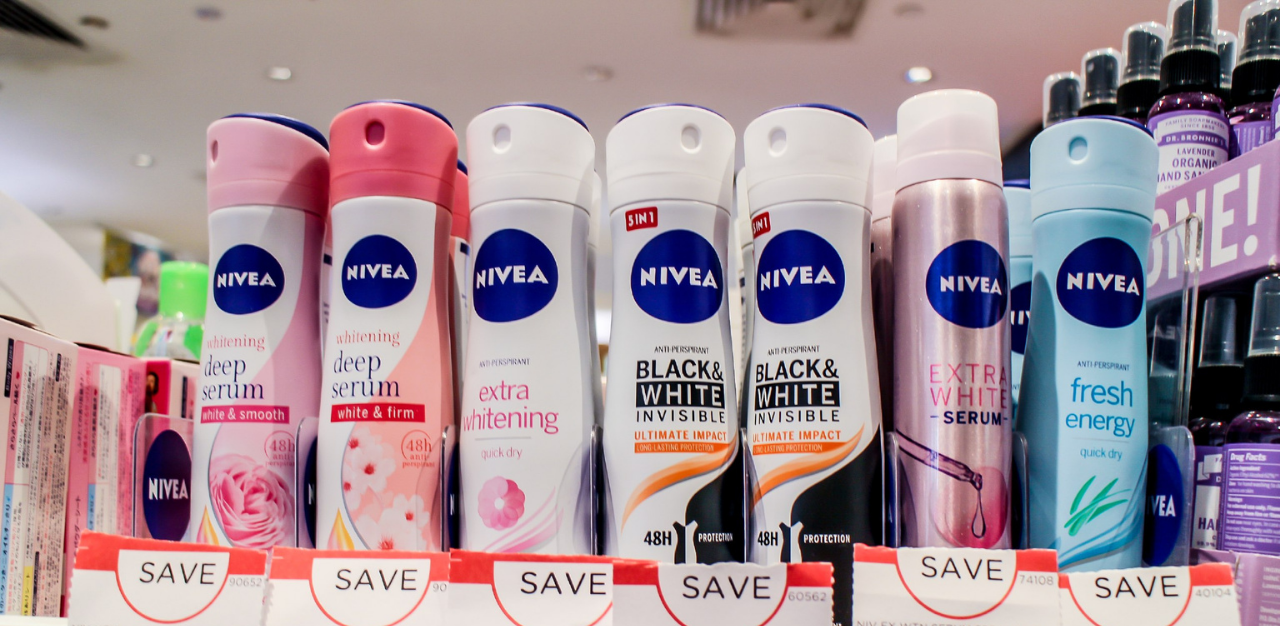
Phrases such as ‘white and firm’, ‘white and smooth’ and ‘fresh energy’ are used to describe ideal qualities that women are expected to appreciate and embody.
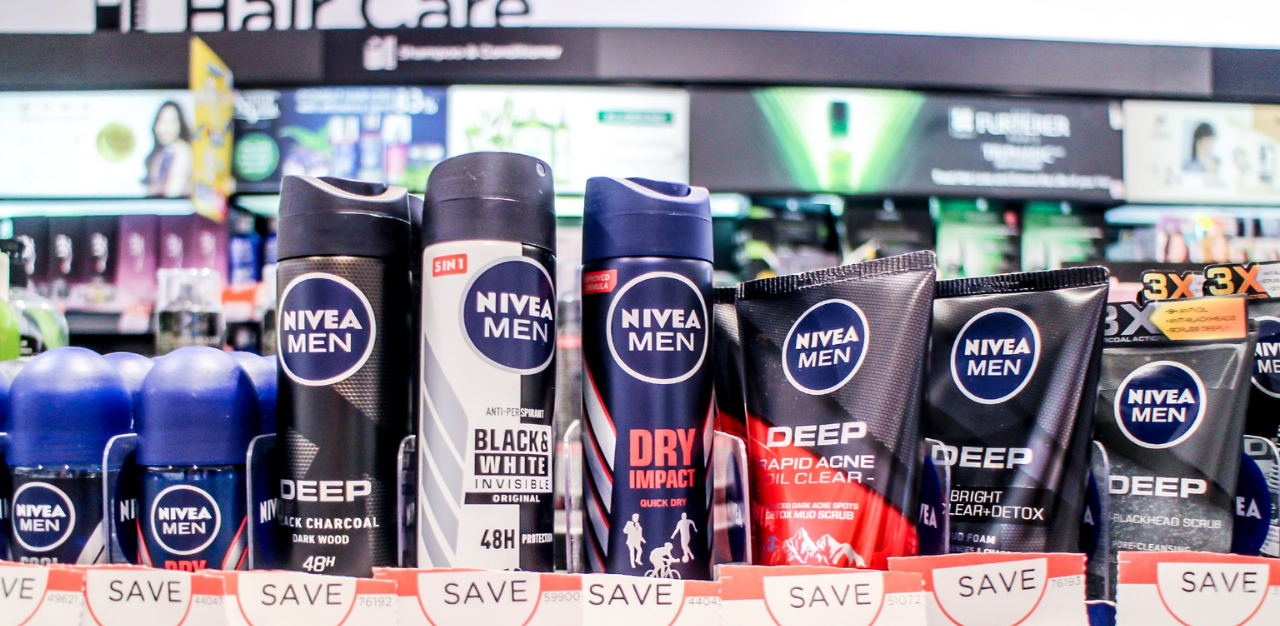
In contrast, phrases such as ‘dry impact’ and ‘rapid acne oil clear’ that emphasise the effectiveness of the product dominate the corresponding men’s range.
Hence, although female body care products reflect society’s standards of an ideal woman’s body, male body care products appear to focus more on product features and efficacy.
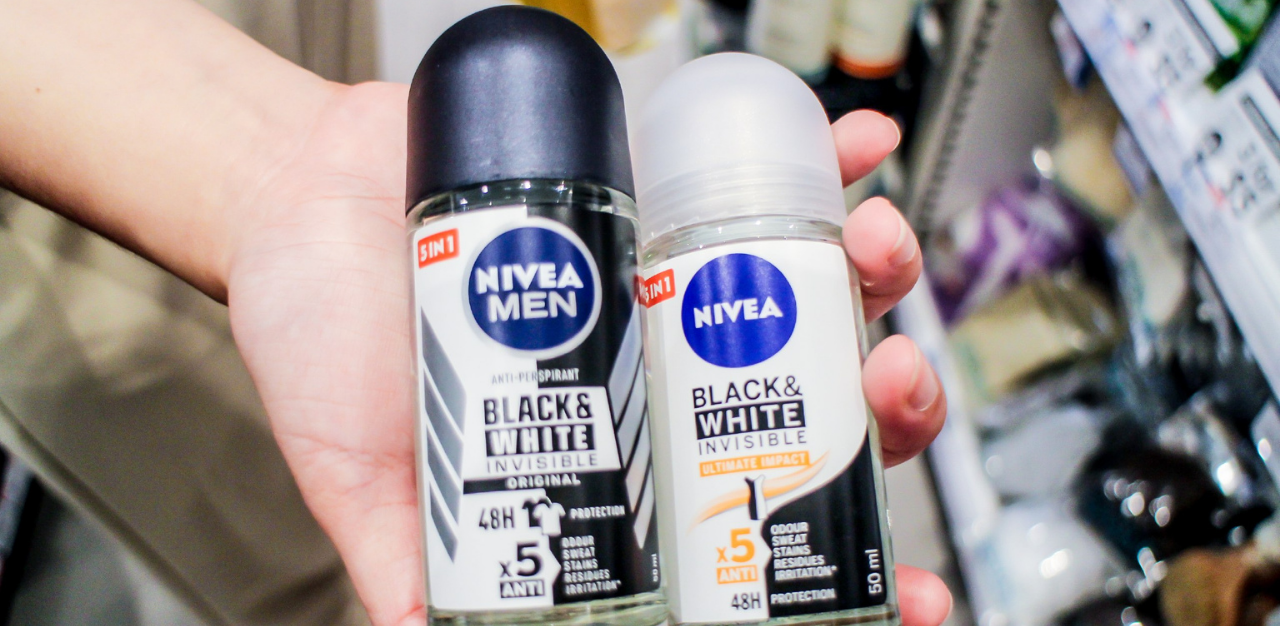
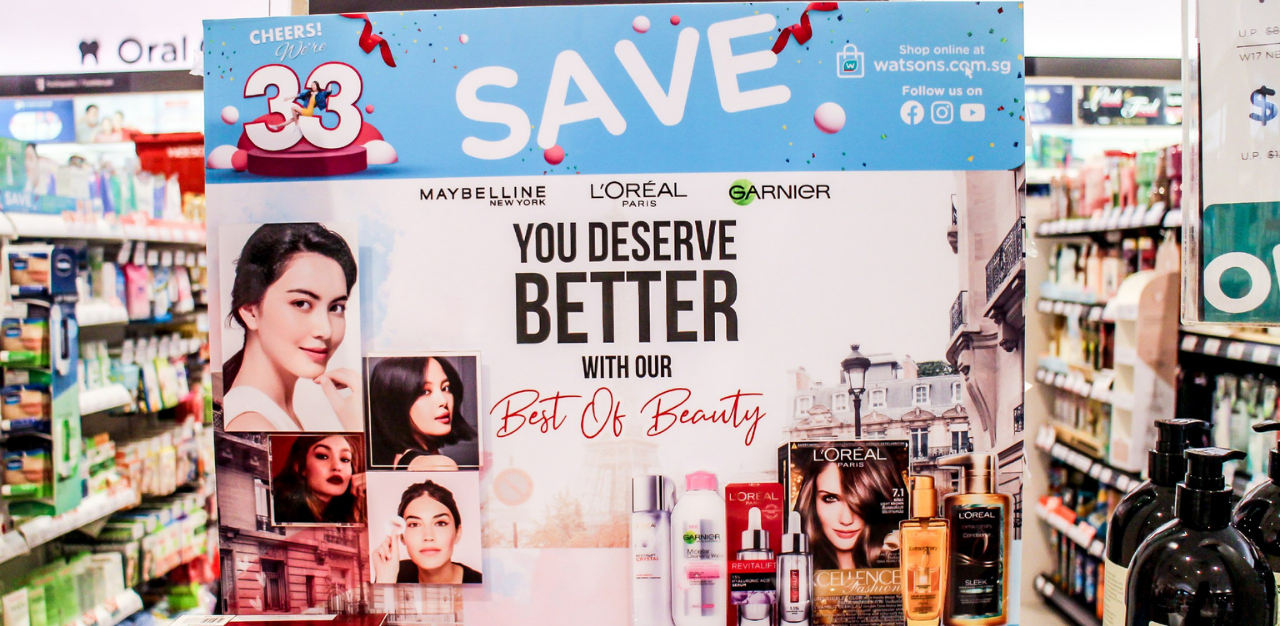
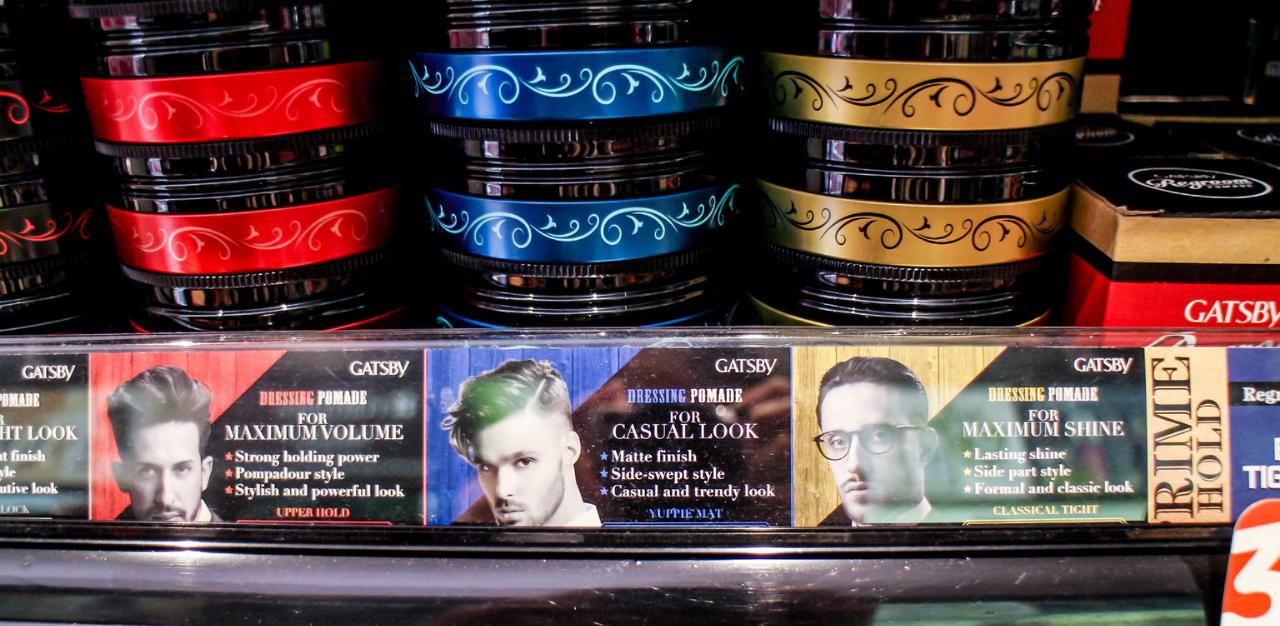
Society’s control over body image can also be seen in the hair care industry. The identification of stylishness, power and trendiness as desired qualities for men in hair care products indicate a theme of empowerment. On the other hand, women’s hair care products appear to hold traits such as soft, smooth and shiny hair as ideals.
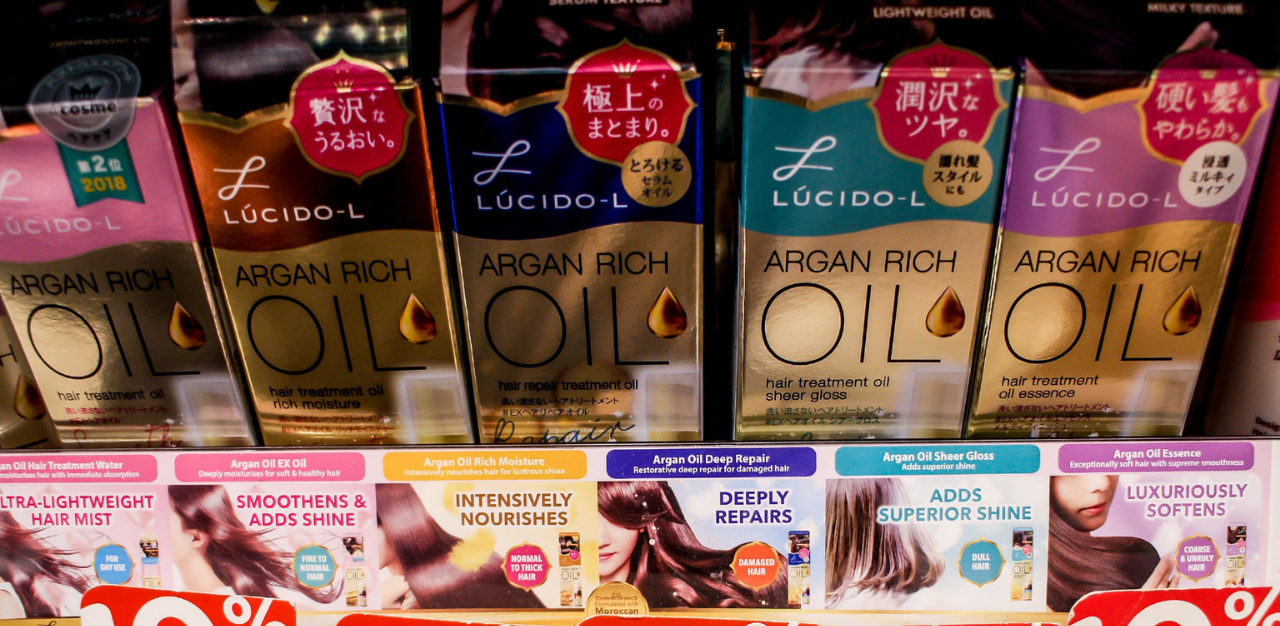
This is not to say that there have not been efforts to use healthier images of women within the marketing space. Brands such as local label Our Bralette Club intentionally feature models of varying body types to promote realistic portrayals of women’s bodies.
Similarly, Dove’s “Dove Real Beauty Pledge” showcases models of different body types and ethnicity, a step towards inclusivity in the beauty industry. And in 2016, Fenty Beauty’s launch of its Pro Filt’R foundation line included 40 different shades of foundation catering to a wide range of skin tones.
We may not know what beauty ideals of the future will further coax a woman to smoothen, suck, lighten, lift or tuck.
But one thing that could use a boost are consumers’ efforts to challenge unattainable and unnatural standards of beauty, and to further inclusivity in the way women are represented.
Join the conversations on THG’s Facebook and Instagram, and get the latest updates via Telegram.
